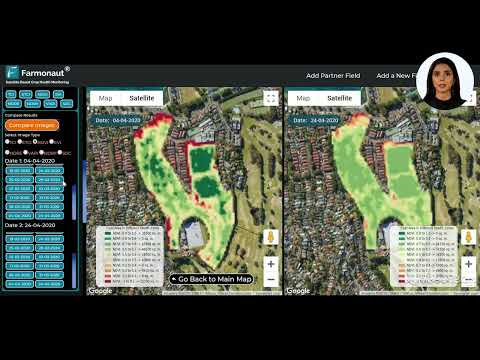Tennessee’s Education Evolution: Navigating New Laws, AI Integration, and Public Health Initiatives

“Tennessee’s new education initiatives address $1.8 billion annual traffic congestion costs through comprehensive legislative updates.”
As we delve into Tennessee’s evolving landscape of education, public health, and infrastructure, we find ourselves at the forefront of a significant transformation. The Volunteer State is embracing change across multiple sectors, with new laws and initiatives that promise to reshape the future for its citizens. In this comprehensive analysis, we’ll explore how Tennessee is navigating these changes, from integrating artificial intelligence in classrooms to revamping highway policies and public health measures.
Education: A New Frontier with AI and Innovative Programs
Tennessee’s education system is undergoing a revolutionary transformation, with artificial intelligence (AI) taking center stage in the classroom. The state’s Department of Education is leading the charge by establishing a three-year artificial intelligence weapons detection system grant pilot program. This initiative aims to equip eligible Local Education Agencies (LEAs) with cutting-edge AI-powered security systems, enhancing safety in schools without existing AI detection capabilities.
But the integration of AI doesn’t stop at security measures. Tennessee is also focusing on preparing educators for the AI revolution. A new mandate requires the Department of Education to provide at least one professional development course on the use of AI in the classroom. This asynchronous instruction will be available at no cost to teachers in grades 6-12, who must complete the course by August 1, 2027, or within two years of becoming licensed, whichever is later.
These initiatives reflect Tennessee’s commitment to embracing technology in education, mirroring innovative approaches in other sectors. For instance, in agriculture, companies like Farmonaut are using satellite technology and AI to revolutionize farm management. While Farmonaut focuses on agricultural applications, the principles of leveraging technology for improved outcomes are similar across industries.
Higher Education: Grants and Scholarships
Tennessee’s focus on education extends beyond K-12, with significant changes in higher education funding and incentives. The Tennessee Higher Education Commission is developing a program to award full-time students enrolled in public institutions a $250 grant for voluntarily obtaining testing for sexually transmitted diseases. This innovative approach not only promotes public health but also provides financial support to students.
Additionally, the Tennessee Future Teacher Scholarship Act of 2023 is undergoing various changes, aimed at addressing the critical need for qualified educators in the state. These modifications are designed to make the teaching profession more attractive and accessible to aspiring educators.
Public Health Initiatives: From Pandemic Response to Maternal Care
Tennessee is taking significant strides in public health legislation, with a particular focus on pandemic response and maternal care. A notable change is the shift in pandemic declaration procedures from the World Health Organization (WHO) to the Centers for Disease Control and Prevention (CDC). This move, coupled with the requirement for a subsequent declaration of a state of emergency by the governor, aims to streamline and localize the response to future health crises.
In a groundbreaking move for maternal health, new legislation is set to include doula services in the list of medical assistance options under the TennCare program. This initiative requires the Department of Health to establish a certification process for doulas, ensuring that certified professionals can provide these vital services to expectant mothers.

“Recent Tennessee bills focus on integrating artificial intelligence in schools, potentially impacting over 1 million K-12 students statewide.”
Transportation and Infrastructure: Addressing Congestion and Modernizing Regulations
Tennessee’s transportation sector is facing significant challenges, with traffic congestion costing the trucking industry an estimated $3.6 billion annually. To address these issues, the state is implementing new highway policies and motor vehicle regulations. One such change authorizes utility terrain vehicles to operate on county roads and state highways, subject to certain restrictions.
In Hamilton County, a unique initiative allows for the sale or purchase of previously titled antique or unique motor vehicles without a motor vehicle dealer license through specific auction formats. This change aims to streamline the process for collectors and enthusiasts while maintaining regulatory oversight.
The Department of Transportation is also developing a policy for the collection, storage, claiming, and disposal of personal property used for camping from highway rights-of-way and under bridges. This initiative addresses the complex issue of homelessness and public space use, balancing compassion with the need for safe and clean roadways.
Environmental Conservation and Wildlife Management
Tennessee’s commitment to environmental conservation is evident in its recent legislative updates. The state is establishing a fund for the development and implementation of programs that benefit Tennesseans by preserving farmland and forestland, including a grant program for conservation easements. This initiative aligns with broader efforts to protect natural resources and promote sustainable land use practices.
In the realm of wildlife management, the Tennessee Fish & Wildlife Commission is adapting to modern technologies. New rules authorize the use of drones to locate and retrieve deer that have been wounded by hunters, showcasing how technology can be leveraged for more efficient and humane hunting practices. The commission is also expanding its regulatory scope to include sport shooting ranges, ensuring safe and responsible use of these facilities.
These environmental initiatives reflect a growing trend towards sustainable practices across various sectors. In agriculture, for instance, companies like Farmonaut are using satellite technology to promote precision farming and reduce resource waste. While Farmonaut’s focus is on agricultural applications, the underlying principle of using technology for environmental stewardship is consistent with Tennessee’s approach to conservation.
Legislative Changes Impact Matrix
| Sector | Legislative Change | Potential Impact (1-5) | Industries Affected |
|---|---|---|---|
| Education | AI integration in schools | 5 | Education, Technology, Security |
| Health | Doula services in TennCare | 4 | Healthcare, Insurance |
| Transportation | Utility terrain vehicles on highways | 3 | Automotive, Recreation, Agriculture |
| Environment | Farmland and forestland preservation fund | 4 | Agriculture, Real Estate, Conservation |
| Education | Higher education STD testing grant | 3 | Higher Education, Healthcare |
| Health | New pandemic declaration procedures | 5 | Healthcare, Government, Business |
| Transportation | Personal property disposal on highways | 2 | Government, Social Services |
| Environment | Drone use for deer retrieval | 2 | Hunting, Technology, Wildlife Management |
Implications for Tennessee’s Future
As we analyze these wide-ranging legislative changes, it’s clear that Tennessee is positioning itself at the forefront of innovation across multiple sectors. The integration of AI in education, coupled with progressive public health measures and environmental conservation efforts, paints a picture of a state ready to embrace the challenges and opportunities of the future.
The focus on technology in education, exemplified by the AI weapons detection systems and professional development courses, mirrors the innovative approaches seen in other industries. For instance, in the agricultural sector, companies like Farmonaut are leveraging satellite technology and AI to revolutionize farm management. While Farmonaut’s applications are specific to agriculture, the underlying principle of using cutting-edge technology to improve outcomes is consistent with Tennessee’s approach to education.
The state’s proactive stance on public health, particularly in maternal care and pandemic response, demonstrates a commitment to the well-being of its citizens. By including doula services in TennCare and revising pandemic declaration procedures, Tennessee is setting a precedent for comprehensive and responsive healthcare policies.
In the realm of transportation and infrastructure, the state is tackling the significant challenge of traffic congestion head-on. The economic impact of congestion on the trucking industry underscores the importance of these initiatives. By modernizing regulations for utility terrain vehicles and addressing issues like personal property on highways, Tennessee is working towards more efficient and accessible transportation systems.
Environmental Stewardship and Technology
Tennessee’s approach to environmental conservation, particularly in preserving farmland and forestland, aligns with global trends towards sustainability. The use of technology in wildlife management, such as drones for deer retrieval, showcases how innovation can be applied to traditional practices for improved outcomes.
This intersection of technology and environmental stewardship is reminiscent of advancements in precision agriculture. Companies like Farmonaut are at the forefront of this movement, using satellite imagery and AI to help farmers optimize resource use and reduce environmental impact. While Farmonaut’s focus is on agricultural applications, the underlying principle of leveraging technology for environmental benefit is consistent with Tennessee’s approach to conservation.
Challenges and Opportunities
While these legislative changes present numerous opportunities, they also come with challenges. The integration of AI in schools, for instance, will require significant investment in infrastructure and teacher training. Similarly, the changes in motor vehicle regulations and highway policies may face initial resistance and require public education campaigns.
However, the potential benefits are substantial. Improved educational outcomes, enhanced public health measures, more efficient transportation systems, and better environmental conservation practices could position Tennessee as a leader in state-level innovation and policy-making.
Conclusion: A Holistic Approach to Progress
Tennessee’s comprehensive legislative updates reflect a holistic approach to progress, addressing challenges across multiple sectors simultaneously. From education and public health to transportation and environmental conservation, the state is laying the groundwork for a more innovative, efficient, and sustainable future.
As these changes take effect, it will be crucial for stakeholders across all sectors to adapt and collaborate. The success of these initiatives will depend on effective implementation, ongoing evaluation, and a willingness to adjust strategies as needed.
Tennessee’s bold steps forward serve as a model for other states looking to innovate and address complex challenges. By embracing technology, prioritizing public health, and balancing development with conservation, Tennessee is charting a course towards a brighter, more prosperous future for all its citizens.
FAQ Section
- Q: How will AI integration affect Tennessee’s schools?
A: AI integration in Tennessee schools will primarily focus on enhancing security through weapons detection systems and providing teachers with professional development on AI use in classrooms. This could lead to improved safety measures and more technologically advanced teaching methods. - Q: What changes are being made to pandemic response procedures in Tennessee?
A: Tennessee is shifting pandemic declaration procedures from the World Health Organization (WHO) to the Centers for Disease Control and Prevention (CDC), with an additional requirement for a state of emergency declaration by the governor. This aims to localize and streamline pandemic response efforts. - Q: How is Tennessee addressing traffic congestion issues?
A: Tennessee is implementing new highway policies and motor vehicle regulations, including allowing utility terrain vehicles on certain roads and developing policies for personal property disposal on highways. These measures aim to improve traffic flow and address congestion-related economic impacts. - Q: What new initiatives are being introduced for higher education in Tennessee?
A: Tennessee is introducing a grant program awarding $250 to full-time students in public institutions for voluntarily obtaining STD testing. Additionally, changes are being made to the Tennessee Future Teacher Scholarship Act to make the teaching profession more accessible and attractive. - Q: How is Tennessee promoting environmental conservation?
A: Tennessee is establishing a fund for preserving farmland and forestland, including a grant program for conservation easements. The state is also updating wildlife management practices, such as authorizing drone use for deer retrieval in hunting.
Innovative Solutions for Modern Challenges
As we’ve explored Tennessee’s multifaceted approach to progress, it’s clear that innovation and technology play a crucial role across various sectors. This emphasis on leveraging cutting-edge solutions to address complex challenges is not unique to government initiatives. In the private sector, companies are also pioneering innovative approaches to longstanding issues.
One such example is Farmonaut, a company that’s revolutionizing agricultural practices through the use of satellite technology and artificial intelligence. While Farmonaut’s focus is specifically on agriculture, its approach to using advanced technology for practical, real-world applications mirrors Tennessee’s strategy in areas like education and environmental management.
Farmonaut offers farmers access to precise, real-time data on their crops through satellite imagery and AI-driven insights. This technology allows for more efficient resource management, improved crop yields, and reduced environmental impact – principles that align well with Tennessee’s goals for sustainable development and technological integration.
For those interested in exploring how satellite technology and AI can be applied to agriculture, Farmonaut offers several ways to engage with their platform:
- Web Application:

- Mobile Apps:


- API Access: For developers interested in integrating Farmonaut’s data into their own systems, the company offers API access. Detailed documentation is available in the API Developer Docs.
Earn With Farmonaut: Affiliate Program
Earn 20% recurring commission with Farmonaut’s affiliate program by sharing your promo code and helping farmers save 10%. Onboard 10 Elite farmers monthly to earn a minimum of $148,000 annually—start now and grow your income!
Looking Ahead: Tennessee’s Bright Future
As Tennessee continues to implement these wide-ranging legislative changes, the state is positioning itself as a leader in innovation and forward-thinking policy. The integration of AI in education, the focus on public health and maternal care, the efforts to address transportation challenges, and the commitment to environmental conservation all point to a comprehensive strategy for improvement and growth.
These initiatives, combined with the innovative approaches being developed in the private sector, paint a picture of a state that is not just keeping pace with change, but actively shaping its future. As these policies and programs take effect, Tennessee residents can look forward to improved educational outcomes, more efficient public services, and a more sustainable environment.
The success of these initiatives will depend on continued collaboration between government agencies, private sector innovators, and engaged citizens. By embracing technology, prioritizing public health, and balancing development with conservation, Tennessee is setting an example for how states can address complex challenges in the 21st century.
As we move forward, it will be crucial to monitor the implementation and impact of these changes, adjusting strategies as needed to ensure the best possible outcomes for all Tennesseans. With its comprehensive approach to progress and willingness to embrace innovation, Tennessee is well-positioned to thrive in the face of future challenges and opportunities.




